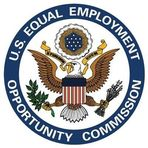The Erosion of Equity: A New Era for Nonprofits and Workers
May 18, 2025, 4:02 pm
In the landscape of American labor, a storm brews. The winds of change, once promising, now threaten to uproot the foundations of diversity, equity, and inclusion (DEI) initiatives. Nonprofits that have tirelessly worked to bridge the gap in skilled trades are facing an uncertain future. The recent actions of the Trump administration have sent shockwaves through organizations dedicated to empowering marginalized communities.
At the heart of this upheaval is the Chicago Women in Trades, a beacon of hope for women seeking careers in construction. Founded in 1981, this organization has become a lifeline, providing training and support to women entering a field historically dominated by men. Yet, with the Department of Labor pulling grants, the future of such programs hangs in the balance.
The sound of drills and hammers fills the air at the Ironworkers Local 63 training center in Broadview, Illinois. Here, women don hard hats and safety glasses, eager to learn the ropes of the trade. The pre-apprenticeship program is a lifeline, with about 70% of participants moving on to apprenticeships. But uncertainty looms. The funding that fuels these programs is now at risk, leaving many women like Sam Barraza in limbo.
Barraza, a 24-year-old nonbinary individual, found purpose in the construction industry after struggling in an office job. The program opened doors that were previously closed. Without it, many like Barraza may never find their footing in a field that desperately needs skilled workers.
The construction industry is at a crossroads. With a projected need for over 400,000 new workers this year alone, the stakes are high. Organizations like the Associated Builders and Contractors are sounding the alarm. They know that to meet demand, they must tap into all available talent. Yet, the recent shift in federal policy threatens to stifle progress.
The Biden administration had made strides in expanding DEI initiatives, particularly in the skilled trades. Grants under the Women in Apprenticeship and Nontraditional Occupations (WANTO) program surged, providing critical funding to organizations like Chicago Women in Trades. But now, the Trump administration's proposed budget cuts threaten to dismantle these efforts.
The administration argues that DEI policies create undue pressure on employers, leading to hiring practices based on race or gender rather than merit. This perspective has sparked a fierce debate. Advocates for DEI assert that these initiatives are essential for leveling the playing field. They argue that increasing diversity in the workforce not only addresses pay gaps but also helps fill labor shortages.
The recent ruling by a federal judge further complicates matters. The decision to strike down workplace protections for transgender workers marks a significant setback for LGBTQIA+ rights. The judge's opinion reflects a broader cultural battle, one that pits traditional views against progressive ideals. This ruling could have far-reaching implications, making it harder for marginalized workers to seek justice in the workplace.
As the dust settles, the implications of these changes become clear. Nonprofits that once thrived under supportive policies now face an uphill battle. The loss of funding means missed opportunities for training and development. It means fewer women and minorities entering the workforce, exacerbating existing labor shortages.
Organizations like the Maryland Center for Construction Education & Training are already feeling the impact. The loss of federal funding threatens to suspend programs designed to help women enter construction. This is not just a financial blow; it’s a blow to communities that rely on these programs for economic mobility.
The construction industry is responding. Companies like Turner Construction are partnering with community organizations to expose young women to the trades. They understand that without a diverse workforce, the industry cannot thrive. Yet, the uncertainty surrounding federal funding casts a long shadow over these efforts.
The Associated General Contractors of America is also adapting. They are committed to their “Culture of Care” initiative, which aims to combat harassment and discrimination in the industry. This commitment is crucial, especially as the landscape shifts. The organization recognizes that a viable future depends on creating an inclusive environment for all workers.
As the battle over DEI initiatives unfolds, the stakes could not be higher. The future of skilled trades hangs in the balance. The need for workers is urgent, yet the path forward is fraught with challenges. Nonprofits and organizations dedicated to fostering diversity must navigate a complex landscape of shifting policies and cultural tensions.
In this new era, the fight for equity and inclusion is far from over. The voices of those advocating for change must be heard. The construction industry, and indeed all sectors, must recognize that diversity is not just a checkbox; it’s a necessity. The future of work depends on it.
As we look ahead, the question remains: will we allow the winds of change to erode the progress made, or will we stand firm in our commitment to equity and inclusion? The answer lies in our collective actions. The time to act is now.
At the heart of this upheaval is the Chicago Women in Trades, a beacon of hope for women seeking careers in construction. Founded in 1981, this organization has become a lifeline, providing training and support to women entering a field historically dominated by men. Yet, with the Department of Labor pulling grants, the future of such programs hangs in the balance.
The sound of drills and hammers fills the air at the Ironworkers Local 63 training center in Broadview, Illinois. Here, women don hard hats and safety glasses, eager to learn the ropes of the trade. The pre-apprenticeship program is a lifeline, with about 70% of participants moving on to apprenticeships. But uncertainty looms. The funding that fuels these programs is now at risk, leaving many women like Sam Barraza in limbo.
Barraza, a 24-year-old nonbinary individual, found purpose in the construction industry after struggling in an office job. The program opened doors that were previously closed. Without it, many like Barraza may never find their footing in a field that desperately needs skilled workers.
The construction industry is at a crossroads. With a projected need for over 400,000 new workers this year alone, the stakes are high. Organizations like the Associated Builders and Contractors are sounding the alarm. They know that to meet demand, they must tap into all available talent. Yet, the recent shift in federal policy threatens to stifle progress.
The Biden administration had made strides in expanding DEI initiatives, particularly in the skilled trades. Grants under the Women in Apprenticeship and Nontraditional Occupations (WANTO) program surged, providing critical funding to organizations like Chicago Women in Trades. But now, the Trump administration's proposed budget cuts threaten to dismantle these efforts.
The administration argues that DEI policies create undue pressure on employers, leading to hiring practices based on race or gender rather than merit. This perspective has sparked a fierce debate. Advocates for DEI assert that these initiatives are essential for leveling the playing field. They argue that increasing diversity in the workforce not only addresses pay gaps but also helps fill labor shortages.
The recent ruling by a federal judge further complicates matters. The decision to strike down workplace protections for transgender workers marks a significant setback for LGBTQIA+ rights. The judge's opinion reflects a broader cultural battle, one that pits traditional views against progressive ideals. This ruling could have far-reaching implications, making it harder for marginalized workers to seek justice in the workplace.
As the dust settles, the implications of these changes become clear. Nonprofits that once thrived under supportive policies now face an uphill battle. The loss of funding means missed opportunities for training and development. It means fewer women and minorities entering the workforce, exacerbating existing labor shortages.
Organizations like the Maryland Center for Construction Education & Training are already feeling the impact. The loss of federal funding threatens to suspend programs designed to help women enter construction. This is not just a financial blow; it’s a blow to communities that rely on these programs for economic mobility.
The construction industry is responding. Companies like Turner Construction are partnering with community organizations to expose young women to the trades. They understand that without a diverse workforce, the industry cannot thrive. Yet, the uncertainty surrounding federal funding casts a long shadow over these efforts.
The Associated General Contractors of America is also adapting. They are committed to their “Culture of Care” initiative, which aims to combat harassment and discrimination in the industry. This commitment is crucial, especially as the landscape shifts. The organization recognizes that a viable future depends on creating an inclusive environment for all workers.
As the battle over DEI initiatives unfolds, the stakes could not be higher. The future of skilled trades hangs in the balance. The need for workers is urgent, yet the path forward is fraught with challenges. Nonprofits and organizations dedicated to fostering diversity must navigate a complex landscape of shifting policies and cultural tensions.
In this new era, the fight for equity and inclusion is far from over. The voices of those advocating for change must be heard. The construction industry, and indeed all sectors, must recognize that diversity is not just a checkbox; it’s a necessity. The future of work depends on it.
As we look ahead, the question remains: will we allow the winds of change to erode the progress made, or will we stand firm in our commitment to equity and inclusion? The answer lies in our collective actions. The time to act is now.


